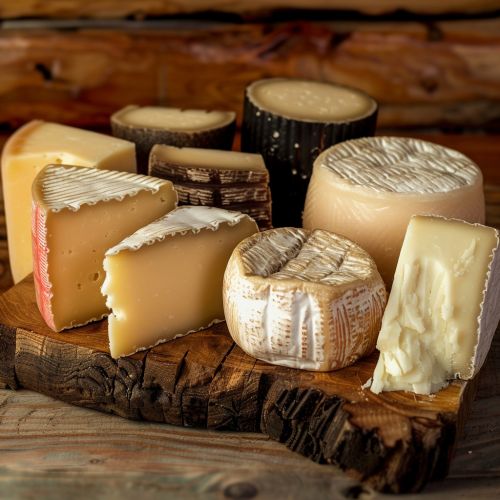Dairy products
Introduction
Dairy products are a diverse group of food products derived from the milk of mammals, primarily cows, goats, sheep, and buffalo. These products play a crucial role in human nutrition, providing essential nutrients such as calcium, protein, and vitamins. Dairy products are consumed worldwide in various forms, including milk, cheese, butter, yogurt, and cream. This article delves into the production, nutritional value, types, and health implications of dairy products, offering a comprehensive understanding of their significance in the human diet.
Production of Dairy Products
The production of dairy products involves several stages, from milking the animals to processing the milk into various forms. The primary steps include:
Milking
Milking is the process of extracting milk from dairy animals. This can be done manually or using mechanical milking machines. The milk is then collected and stored in refrigerated tanks to maintain its freshness and prevent bacterial growth.
Pasteurization
Pasteurization is a heat treatment process that kills harmful bacteria and extends the shelf life of milk. The milk is heated to a specific temperature for a set period and then rapidly cooled. This process preserves the nutritional value of the milk while ensuring its safety for consumption.
Homogenization
Homogenization is a mechanical process that breaks down fat molecules in milk, preventing the cream from separating and rising to the top. This results in a uniform consistency and improves the texture and taste of the milk.
Fermentation
Fermentation is used to produce various dairy products such as yogurt, cheese, and kefir. This process involves the addition of specific bacterial cultures to milk, which ferment the lactose (milk sugar) into lactic acid. The lactic acid acts as a preservative and gives the products their characteristic tangy flavor.
Aging
Aging, or ripening, is a critical step in cheese production. During this process, cheese is stored under controlled conditions for a specific period, allowing it to develop its flavor, texture, and aroma. Different types of cheese require different aging times, ranging from a few weeks to several years.
Types of Dairy Products
Dairy products can be categorized into several types based on their production processes and characteristics. The main types include:
Milk
Milk is the primary dairy product and serves as the base for many other dairy products. It is rich in essential nutrients such as calcium, protein, and vitamins A and D. Milk can be consumed in various forms, including whole, skimmed, and flavored milk.
Cheese
Cheese is a fermented dairy product made by coagulating milk proteins (casein) and separating the solid curds from the liquid whey. There are numerous varieties of cheese, each with unique flavors, textures, and aging processes. Some popular types include cheddar, mozzarella, brie, and gouda.


Butter
Butter is a dairy product made by churning cream to separate the butterfat from the buttermilk. It is commonly used as a spread, cooking fat, and baking ingredient. Butter is rich in fat-soluble vitamins such as A, D, E, and K.
Yogurt
Yogurt is a fermented dairy product made by adding bacterial cultures to milk. The fermentation process thickens the milk and gives yogurt its tangy flavor. Yogurt is a good source of probiotics, which are beneficial for gut health.
Cream
Cream is the high-fat component of milk that rises to the top when milk is left to stand. It can be separated and used to make various products such as whipped cream, sour cream, and heavy cream. Cream is rich in fat and fat-soluble vitamins.
Nutritional Value of Dairy Products
Dairy products are highly nutritious and provide a wide range of essential nutrients. Some of the key nutrients found in dairy products include:
Calcium
Calcium is a vital mineral for bone health, muscle function, and nerve transmission. Dairy products are one of the best dietary sources of calcium, helping to prevent osteoporosis and maintain strong bones.
Protein
Dairy products are an excellent source of high-quality protein, which is essential for growth, repair, and maintenance of body tissues. The proteins in dairy products, such as casein and whey, are easily digestible and provide all essential amino acids.
Vitamins
Dairy products are rich in several vitamins, including vitamin A, which is important for vision and immune function, and vitamin D, which aids in calcium absorption and bone health. They also contain B vitamins, such as riboflavin and vitamin B12, which are crucial for energy metabolism and red blood cell formation.
Fats
The fat content in dairy products varies depending on the type of product. Whole milk and cream are high in saturated fats, while skimmed milk and low-fat dairy products have reduced fat content. Dairy fats provide energy and help in the absorption of fat-soluble vitamins.
Health Implications of Dairy Consumption
The consumption of dairy products has both positive and negative health implications. It is important to consider these factors when including dairy in the diet.
Benefits
Dairy products offer several health benefits, including:
- Improved bone health: The calcium and vitamin D in dairy products help maintain bone density and reduce the risk of osteoporosis.
- Muscle growth and repair: The high-quality protein in dairy products supports muscle growth and repair, making them beneficial for athletes and active individuals.
- Weight management: Some studies suggest that dairy products can aid in weight management by promoting satiety and reducing overall calorie intake.
Risks
Despite their benefits, dairy products can also pose certain health risks, such as:
- Lactose intolerance: Some individuals lack the enzyme lactase, which is necessary for digesting lactose, the sugar in milk. This can lead to symptoms such as bloating, diarrhea, and abdominal pain.
- Allergies: Milk protein allergies, particularly to casein and whey, can cause allergic reactions in some individuals, ranging from mild to severe.
- Cardiovascular health: The high saturated fat content in some dairy products may contribute to increased cholesterol levels and a higher risk of cardiovascular disease.
Dairy Alternatives
For individuals who cannot consume dairy products due to lactose intolerance, allergies, or dietary preferences, there are several alternatives available. These include:
Plant-Based Milks
Plant-based milks, such as almond milk, soy milk, and oat milk, are popular alternatives to cow's milk. They are often fortified with calcium and vitamins to match the nutritional profile of dairy milk.
Lactose-Free Dairy
Lactose-free dairy products are made by adding the enzyme lactase to regular dairy products, breaking down the lactose and making them suitable for lactose-intolerant individuals.
Non-Dairy Yogurts and Cheeses
Non-dairy yogurts and cheeses are made from plant-based ingredients such as soy, nuts, and coconut. These products are designed to mimic the taste and texture of traditional dairy products while being free from lactose and milk proteins.
